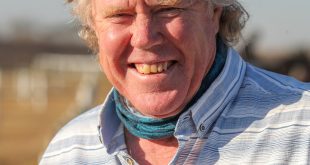Yet London News travelled to Hong Kong directly from Cape Town, after 40 days of quarantine, while Variety Club had to complete five months of quarantine in three countries, highlighting the fact that South Africa now faces greater constraints than it did seventeen years ago.
Hence, Variety Club’s victory could not have come at a better moment as it took place in front of the 800 delegates of the 35th Asian Racing Conference, firmly placing the spotlight on the difficult quarantine demands placed on South African racehorses.
“I think if there is not already an incentive for the Asian Racing Conference to facilitate a better travel situation for South African horses to the great races of the world, then we saw one today,” said Hong Kong Jockey Club CEO Winfried Engelbrecht-Bresges at the conclusion of the Champions Mile.
Engelbrecht-Bresges has taken it upon himself to pursue an improvement to the current restrictions. “One of the tasks that is in my area as Deputy Vice-Chairman of the International Horse Racing Federation is the issue of horses travelling and we will definitely have a look at putting it on the agenda to take forward.”
Already on the agenda of the current Asian Racing Conference, currently underway in Hong Kong,was the Plenary Session ‘Movement of Horses’, with Racing South Africa’s Peter Gibson as one of the speakers.
The main topic under discussion was the development of a ‘high health, high performance’ (HHP) concept in order to address the challenges of irregular and excessive health requirements forhorses travelling internationally.
The World Organisation for Animal Health(OIE) project leader, Dr Susanne Münstermann, explained how the OIE is working towards developing international standards for the movement of competition horses, travellingfor the sole purpose of participating in racing or FEI competitions.
Dr Münstermann pointed out that competition horses are closely scrutinised, highly identifiable and traceable and as such pose a low health risk.
Consequently they are a unique subgroup of the global population, which the project has labelled the ‘High Health, High Performance’ subgroup.
Gibson followed on from this, pointing out that not only do the South African racehorses fall in this high performance, high health subgroup, but that African horse sickness is a seasonal disease and hence competition horses can be safely exported during the winter months, from what is arguably the best vector protected quarantine station in the world.
“If the importing countries are willing to consider the true risk of African Horse Sickness, within the current shortcomings of our current system, there is a means of exporting horses from South Africa in a completely safe and professional manner during the winter months,” Gibson explained.
“What is required is a reliable, safe and regular delivery system of South African horses, in order to compete on the International stage.”
Gibson pointed out that possible export solutions could include the upgrading of the current quarantine facilities to provide continuous vector protection, enhanced surveillance of the AHS control area and significant advances in diagnostic testing.[/expand]







